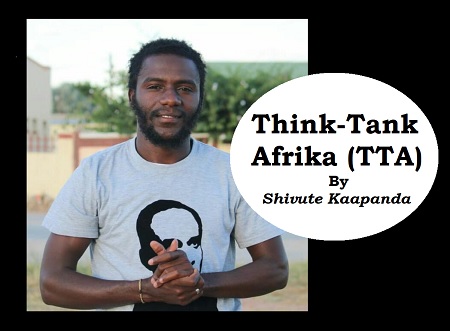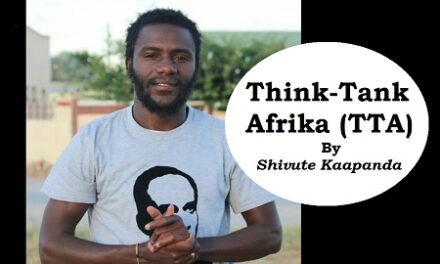Does “Time” actually exist?
By Shivute Kaapanda [Think Tank Africa]
Does time exist actually or is just exists in our minds?
Is time a reality or a perception? How do we as humans define time as a progress whole? Does the existence or non-existence of time mean anything to us? How does time help us to organize ourselves and events? Do other living species experience the existence of time the same way humans do? Can we measure time?
Why do we have different time zones in different geographical areas of the earth? What time is it now? Does religion control and organize time? Does politics has any influence on what time is it? Does the existence and non-existence of time rest on an equal footing?
All these perplexing questions should sink deep into our minds in digesting and investigating the relationship of time in our everyday existence as humans. Our relationship to the existence of time as a fictional phenomenon as religious and political animals is somehow a factor in finding out on the question how time in one way or another can actually be said not to have existed in an actual sense.
By actual it means by evidence, and by evidence it would mean being able to be detected by our senses as humans. Long in the past African people living in villages created their own methods of indicating time to create the sense of perception in satisfying themselves as to what time was it in organizing themselves and to organize the uniformity of any event as it relates to their everyday life.
These people used the shades of the trees, shades of the logs and poles, in fact they attributed the position of the moon and the stars to indicate time and use it to organize certain events in their lives such as hunting seasons and to conduct cultural rites such as circumcisions.
Given these circumstances it would then be very problematic to say time does not exist because it has been proven historically that human species has existed long enough with the existence of time and long enough to have proven the existence of time.
Nowadays the existence of the indicators of time such as calendars and watches has taken us far back in the past to know that the human species has created their own reality of time in accordance of their own perceptions which somehow has affected how nowadays time is being perceived or construed.
Let’s look at what we call the common calendar (Gregorian Calendar/Christian calendar) for example that many countries in the world are currently using but which is also being used as a world standard calendar which was introduced by Pope Gregory XIII in 1582 as a replacement of the Julian calendar by Julius Caesar which was a reformed version of the Roman calendar in the Roman empire with the assistance of the Greek mathematicians and astronomers such as Sosigenes and Alexandria.
This calendar existed for more than 1600 years until 1582. Looking at the current common calendar used in Africa and elsewhere one would notice that our social construction of time is a result of religion more especially Christianity via the Roman Catholic Church. People have to be born in Europe for Africans to adapt to their ways of looking at time. This is an answer to the presiding question on if religion controls or organize time. It would then be safe to say the modern perceptions and methods of time as a social construct was born in Rome.
Whether there is any civilization in colonialism is a question all of us as Africans need to ask as we move to answer whether time actually exist or not and who really controls how time is socially perceived in this world.
The question whether time exists or not has put many thinkers into discomfort but only when we tend to abuse the meaning of existence as a word in putting a proper context to the definition of time.
If time really exists only in our minds and not in actual reality then it does not exist actually.
As humans we tend to have a polarized meaning in our thinking given our geographical locations in the universe, for why don’t we have a complete uniformity of time e.g. why do we have a 365 days year in the Gregorian calendar but a different number of days and rites in an Ethiopian calendar which is far more different in the number of days and years?
Time does not exist as a reality but rather as a social construct for if something really exist it does so actually but not everything which exist does so actually this includes the perception of the existence of time as a fictional reality.
– Shivute Kaapanda is a pan-African writer, philosopher and columnist from Eyanda village in northern Namibia. iskaapanda@gmail.com




